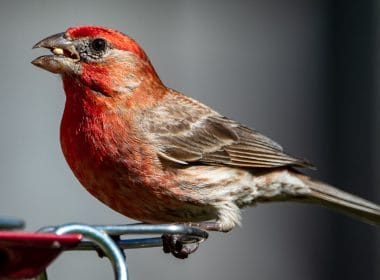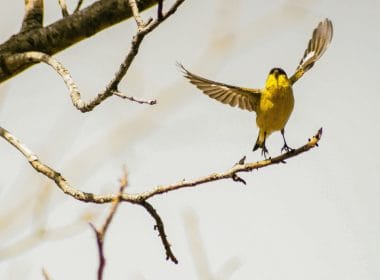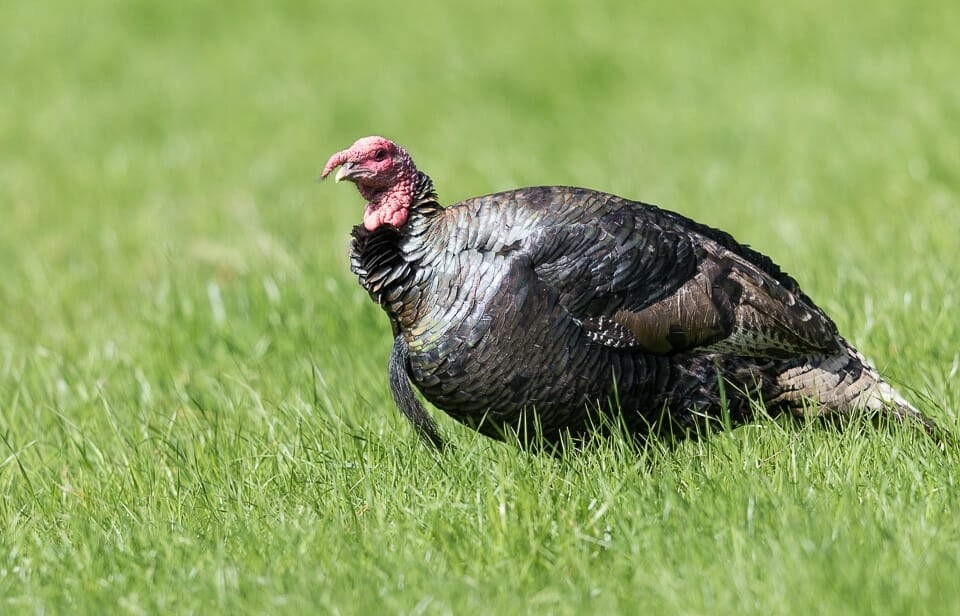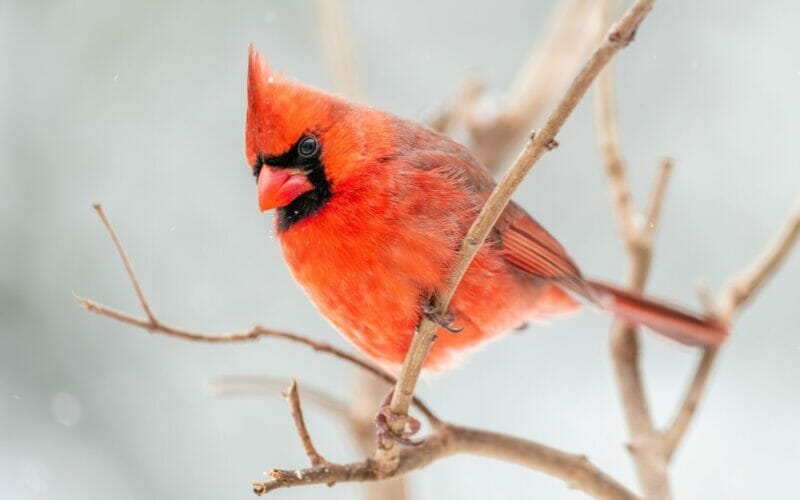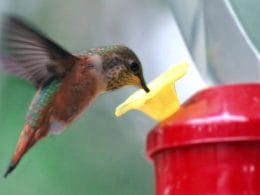Wondering what to do about wild turkeys on your deck? This article helps you figure out what to do when you have too many turkeys in your garden or yard. And it doesn’t have to be complicated, either. Please take a look at these simple steps to humanely help turkeys find another place to spend their time. So how do you keep turkeys off your deck?
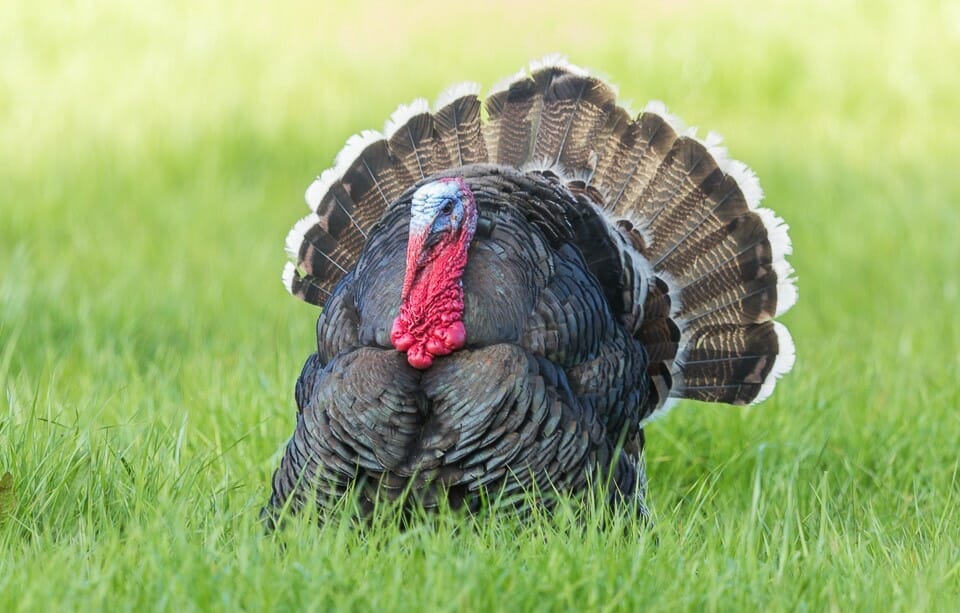
The simplest way to keep turkeys off your deck is to police your food sources to prevent turkeys from finding anything on or near your deck. Don’t plant berry bushes near your deck and put a fence around any plants you see the turkeys eating. Store your bird feeder away from your deck.
There was once a time when wild turkeys were a rare sight. These days, it is all too common to see a flock of turkeys living wild- in many residential neighborhoods.
This is because of several reasons, but encroaching residential areas have forced turkeys to seek food, mates, and shelter in suburban areas. Although some do love seeing turkeys, other people find wild turkeys near their homes and on their deck to be a nuisance.
About Turkeys
The Wild Turkey (Meleagris gallopavo) can be found across much of continental America and Hawaii. It is native to America and while it seems to have been domesticated, the population is still actually wild. Most states allow hunting of turkeys, although there may be restrictions which differ from state to state.
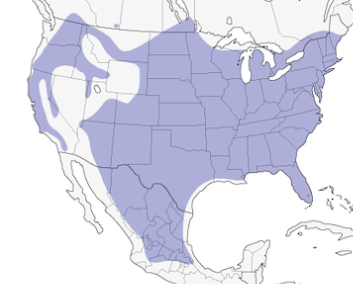
The Wild Turkey is a bird of open country and native forests. It is humans that have intruded on the turkey’s environment and not the other way around!
Troublesome Turkeys
Many people living in residential areas that are surrounded by some nature are often peeved by seeing turkeys and excuse themselves for killing turkeys because of fear of disease from their droppings and making their deck a mess. But is killing turkeys an effective solution?
Author Note: Simply put, no- killing turkeys is not a reasonable or effective method. Not only is it inhumane, but it won’t even solve the solution. While you can expect short term solutions, more turkeys will simply replace the ones that have been killed.
Instead of resorting to caveman tactics, take a look at these simple ways you can prevent turkeys from making a home in your gardens and on your deck.
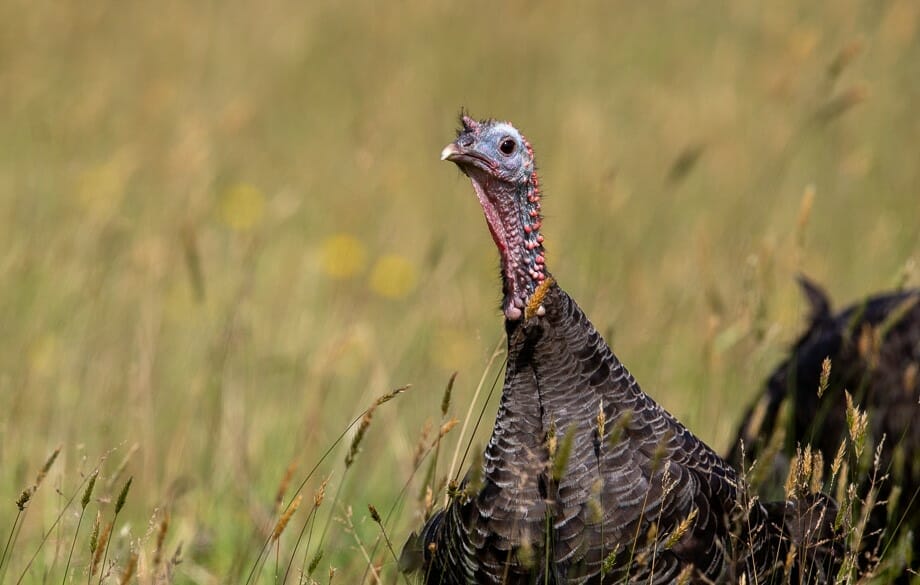
Are Turkeys Dangerous?
Turkeys are not dangerous- not inherently anyway. But, the more time spent in the vicinity of humans and residential areas, the braver and bolder they become. And as they lose their fear of people, they could creep closer and closer to your home and garden until they feel comfortable enough to spend time on your deck and roost in your garden. What does a bold turkey mean for you and your family?
Well, as a turkey becomes bolder, he or she might begin to intimidate you and your family. This may also turn to aggressive behavior- but remember that this is only natural. All they are doing is trying to protect their young and their roosting sites.
Take a look at these practical tips to keep Turkeys out of your garden and off your deck.
Turkey Tip 1: Police Your Food Sources

Turkeys will gather where there is food, shelter, and mates. So, it makes sense to start with the first one: food. When Turkeys live wild and free in their natural habitat, they lead a normal life foraging natural food sources.
As residential areas began to grow, Turkeys found themselves amid residences. In some cases, the Turkeys would have entered the more residential areas attracted by the lure of food and shelter.
Turkeys are still wild animals, and as is the case with most wild animals, if there is a steady food supply close by, they will tend to stay close. If you are struggling with turkeys annoying you and messing up your garden and deck, then you should consider where they could be getting food from.
Be Diligent
Are there places where they could be finding scraps? This could be in a nearby neighbors yard or even on your own. Another possible food source could even be from a bird feeder that you might have hanging in your garden. Turkeys are known to forage for fallen seeds. You can prevent this by simply cleaning up underneath your feeder every day.
Do you know one of your neighbors is feeding the turkey’s leftovers? Or perhaps a neighbor that isn’t monitoring their garbage outside? Find a polite way to broach the subject so that the whole neighborhood can enjoy not having the turkeys come around into their yards.
But leftovers, bird feeders, and garbage cans are not the only potential food sources for turkeys. Other potential food sources include seeds from grass, trees growing nuts and juicy berries from nearby bushes. If you have any plant that bears fruit or nuts, you may want to consider placing fencing around the garden.
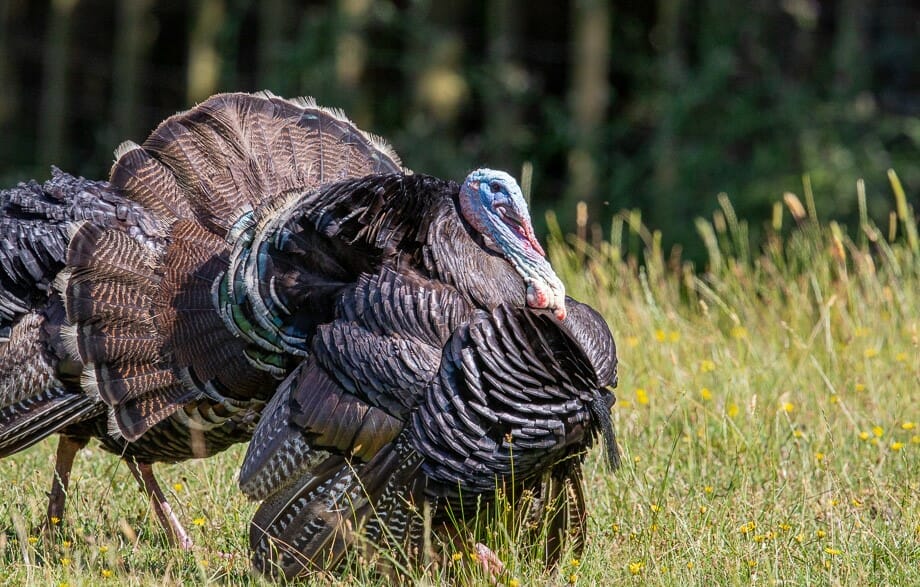
Turkey Tip 2: Become the “Alpha”
According to the Humane Society of the U.S., if you can elevate your position to the top of the turkey pecking order, you may have some success in driving them away.
Does this sound bizarre?
Maybe a little, but bear with us. Animals usually have a hierarchical society. Therefore, if you can climb to the top of the pecking order, the turkeys may leave the area due to the established dominance you present. While this may sound like a bizarre concept, let’s break it down into easy components:
Introduce Unfamiliar Objects
Add scarecrows or 3D sculptures to your garden, or even hanging sculptures or windchimes. Research indicates that a Turkey is a highly perceptive bird, as most birds are, and can detect even the slightest changes in the environment.
Predators such as kites tend to be an excellent deterrent for turkeys, but while you can’t exactly introduce a bird of prey to your area, you can imitate them by using flying kites, waving your hands in the air, or even waving them off with an open umbrella.
While it initially won’t keep them from coming back, the turkeys will eventually tire of continually being chased or unnerved.
If you want to add sculptures to your garden, make sure that you change their position regularly.
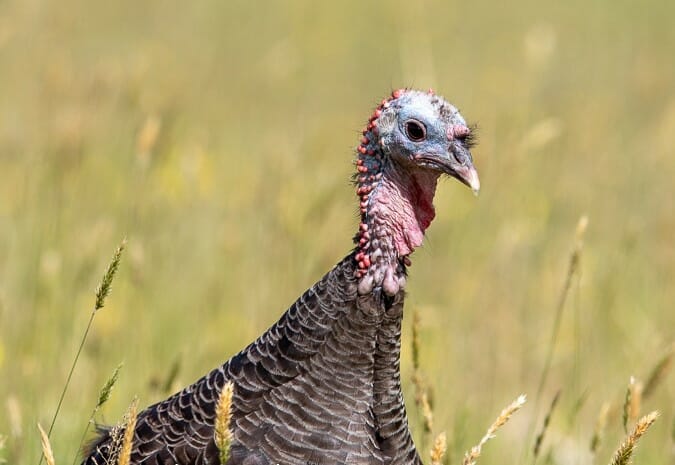
Turkey Tip 3: Use Water
It is no secret that turkeys do not particularly care for water. If you find that they are wandering too close to your home or outside deck, you can use the hosepipe and direct the water towards the incoming intruders.
If you have kids, you may even have a water gun lying around. This water gun can become your best friend when discouraging turkeys from your deck.
Turkey Tip 4: Root out the Roosts
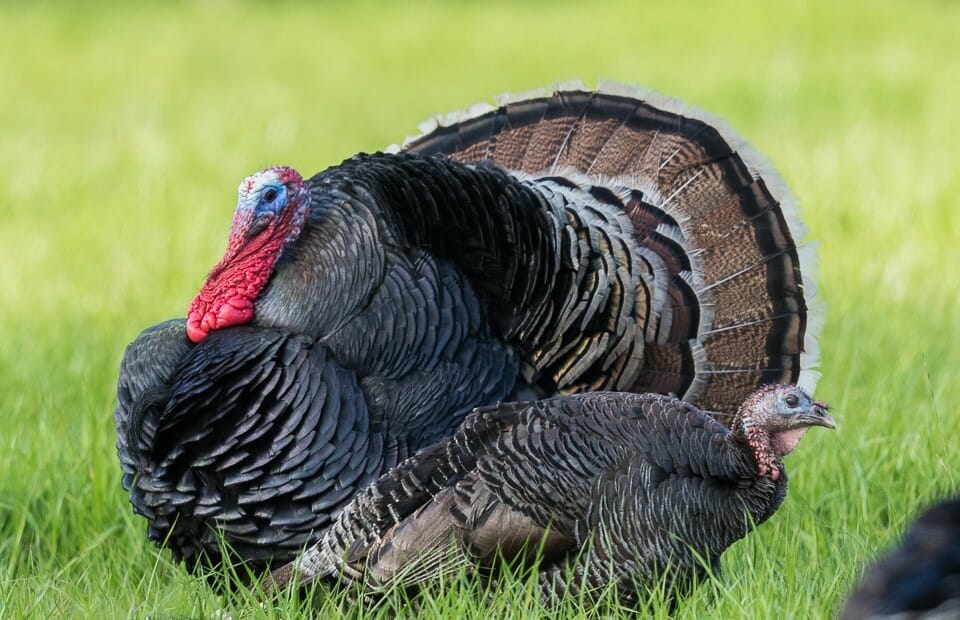
Author Note: You see how active Turkeys can be in the daytime, so it should come as no surprise that they like to get some decent sleep at night. But where does Turkey like to roost? Turkeys will seek out easy and comfortable places that offer shelter at the same time. They could roost in your roof, your bushes, or even your trees.
You can discourage them from roosting on your property by blocking off the best spots for roosting. You can discourage them by pruning trees and bushes to make them uncomfortable for them to roost. Poultry wire can also help if you place it around your bushes and trees.
If Turkeys are not able to find a roosting place in your yard, then you can be almost certain they won’t stick around for long.
So you can see, there are various ways to deter Turkeys from making your home their home. Similarly, you can see that resolving your problems with Turkeys can be simple, humane, yet highly effective. Eliminate their food sources, root out their roosts, and make sure you get to the top of the pecking order.
Conclusion
Remember that Turkeys will be more active during the breeding season, between February and May. Take care when you are driving on the road, as you may also find Turkeys foraging along the road looking for food. They won’t always be that watchful of cars, so keep a lookout when driving on the road. We hope you found this article on how to keep turkeys off your deck useful!
Fly high friends!
FAQ
Wild Turkeys may scratch around your garden but it is unlikely that they will do any real damage. However, they often get blamed for damage caused by other mammals.
They may well do. Turkeys are creatures of habit and like familiar things. So, if they start coming into your garden, it is best to do something quickly before they get comfortable.
There are turkey repellant products available for you to buy. However, you could try homemade remedies. Most birds do not like strong smells so you could fill a spray bottle with water and mint, vinegar or pepper and use that to spray the turkeys with.
Turkeys are relatively placid animals but males during the breeding season may try to dominate the group and anyone around. Like all wild animals, they should be treated with caution.
